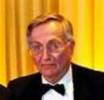
Seymour M. Hersh first wrote for The New Yorker in 1971 and has been a regular contributor to the magazine since 1993. His journalism and publishing prizes include the Pulitzer Prize, four George Polk Awards, the National Magazine Award, and more than a dozen other prizes (Sigma Delta Chi, Worth Bingham, Sidney Hillman, etc.) for investigative reporting on My Lai, the C.I.A.'s bombing of Cambodia, Henry Kissinger's wiretapping, and the C.I.A.'s efforts against Chile's Salvador Allende, and most recently the Abu Ghraib prison in Iraq.
Hersh was born in Chicago, in 1937, and graduated in 1958 from the University of Chicago. He began his newspaper career as a police reporter for the City News Bureau of Chicago. He served in the Army and worked for a suburban newspaper and then for UPI and AP until late 1967, when he joined the Presidential campaign of Eugene J. McCarthy as speech writer and press secretary. Hersh joined the New York Times in 1972, working in Washington and New York. He left the paper in 1979 and has been a freelance writer since, with two six-month returns on special assignment to the Times' Washington bureau.
Hersh has published eight books, most recently “Chain of Command,” published in September 2004. His book prizes include the 1983 National Book Critics Circle Award, the Los Angeles Times award for biography, and a second Sidney Hillman award, for “The Price of Power: Kissinger in the Nixon White House.” Hersh has also won two Investigative Reporters & Editors prizes, for the Kissinger book, in 1983, and in 1992 for a study of American foreign policy and the Israeli nuclear bomb program, “The Samson Option.” In 2004, Hersh won a National Magazine Award for public interest for his three pieces, “Lunch with the Chairman,” “Selective Intelligence,” and “The Stovepipe.”

